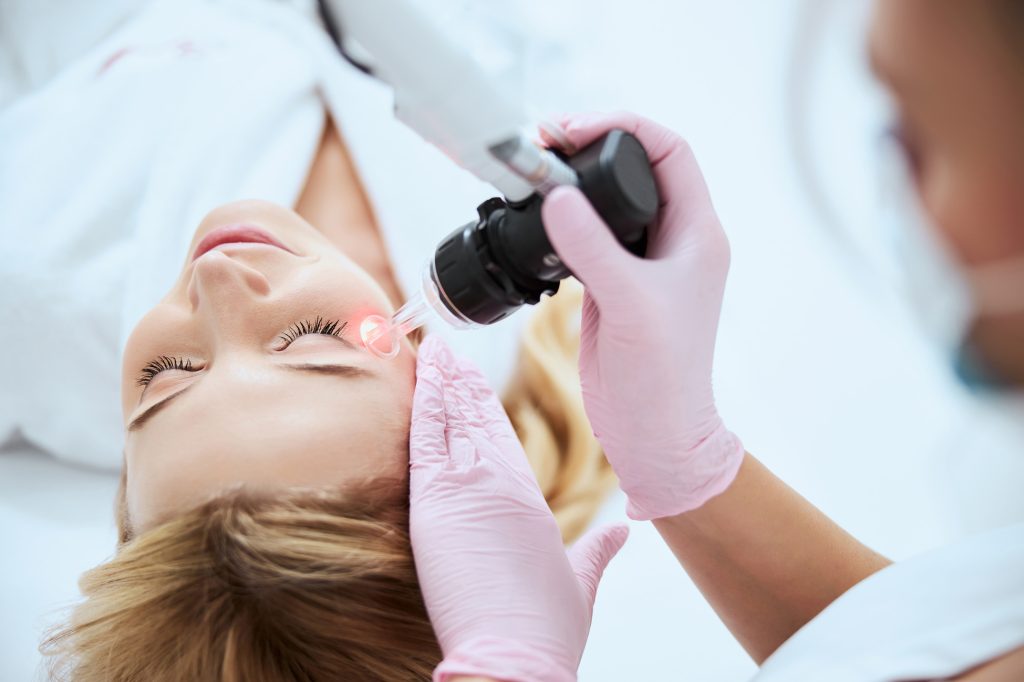Everyone wants to have clear, healthy-looking, and acne-free skin. Unfortunately, most people aren’t just born with perfect genes that support clear skin, and many of the skincare routines adopted by modern Americans are doing more harm than good. Instead of listening to advice from influencers on the Internet, people who want to improve the appearance of their skin should listen to dermatologists.
Why Dermatologists Know Best
Every skincare product manufacturer claims that it has found the magic key to clear, beautiful skin. As everyone knows, though, those are all just advertising tricks designed to sell more products. The services offered by dynamicdermatology.com and other licensed dermatologists are different, as is their expert advice.

Dermatologists are medical doctors. They usually undergo around twelve years of specialized training and education before being allowed to practice independently, which gives them plenty of time to learn all of the tricks of the trade. Dermatologists are also committed to keeping up with changes in the medical literature and industry standards, allowing them to provide patients with the best possible care.
Getting the Basics Down
The first step toward having clearer skin isn’t to buy the most expensive products on the market or to sign up for controversial new therapies. It’s to focus on the basics. Everyone prone to breakouts should be sure to:
- Wash their face both in the morning and the evening.
- Use mild, simple cleansers without a lot of chemical ingredients.
- Exfoliate to remove dead skin cells that could clog up pores.
- Keep dry skin moisturized to stop it from overproducing oil in response.
- Remove makeup every night and choose products that won’t cause clogged pores such as those labeled “oil-free” or “noncomedogenic.”
Following these basic steps can put a stop to breakouts entirely for some people with oily, acne-prone skin. For others, it won’t be quite enough but will provide a solid framework on which to build a more substantial anti-acne routine.
Know the Enemy
Fighting acne using more targeted approaches requires knowing what kind of acne is to blame for those blemishes. The fact that there are multiple types of acne is important to note because each of them is treated a little differently. Here’s what to know:
- Mild acne is best combatted with topical benzoyl peroxide, sometimes combined with a topical retinoid.
- Comedonal acne such as blackheads also responds well to products that include retinoids.
- Inflammatory acne is more difficult to manage, and most dermatologists recommend a topical dapsone 5% gel.
- Acne that causes scarring can be treated with azelaic acid preparations that will reduce the risk of developing unsightly scars.
It’s also fine, according to the American Academy of Dermatology, to create a skincare routine that targets multiple types of acne. Consider including a combination of benzoyl peroxide and either tretinoin or an adapalene gel, and be sure to moisturize to combat dryness.
Lifestyle Factors
There are also lifestyle factors that can influence skin quality, and supporting clear, healthy skin often requires taking steps to improve overall health. The connections between lifestyle factors and skin health aren’t always immediately obvious.
Anti-Acne Diets
While there is no one specific diet to follow to get rid of acne, it has been proven that food plays an important role in skin health. The best diet for managing inflammation and oil production that can contribute to acne development is a whole-food diet that includes plenty of vitamin A and E, zinc, and antioxidants.
Managing Sleep and Stress
When people are sleep deprived, their bodies often begin producing excessive levels of cortisol, a stress hormone that supports wakefulness but also creates problems with inflammation and stress at high levels. A lack of sleep can also contribute to worsening stress levels, which often trigger acne breakouts. Improving sleep hygiene, adopting stress management techniques, and scaling back to-do lists to make time for more enjoyable personal activities can all protect both the skin and overall well-being.
Quitting Smoking for Skin Health
There are more reasons to quit smoking than could be named in one article, but improving skin health is certainly on the list. Smoking narrows the blood vessels in the outermost layers of people’s skin, reducing the flow of oxygen and nutrients and increasing the risk of developing all kinds of skin issues, including not just acne but also squamous cell skin cancer.
Know When to Get Professional Help
Sometimes, even the best at-home anti-acne skincare routines won’t cut it. Anyone who fails to see results using over-the-counter products should consider scheduling an appointment with a dermatologist. Prescription medication or specialized treatment may be required.

